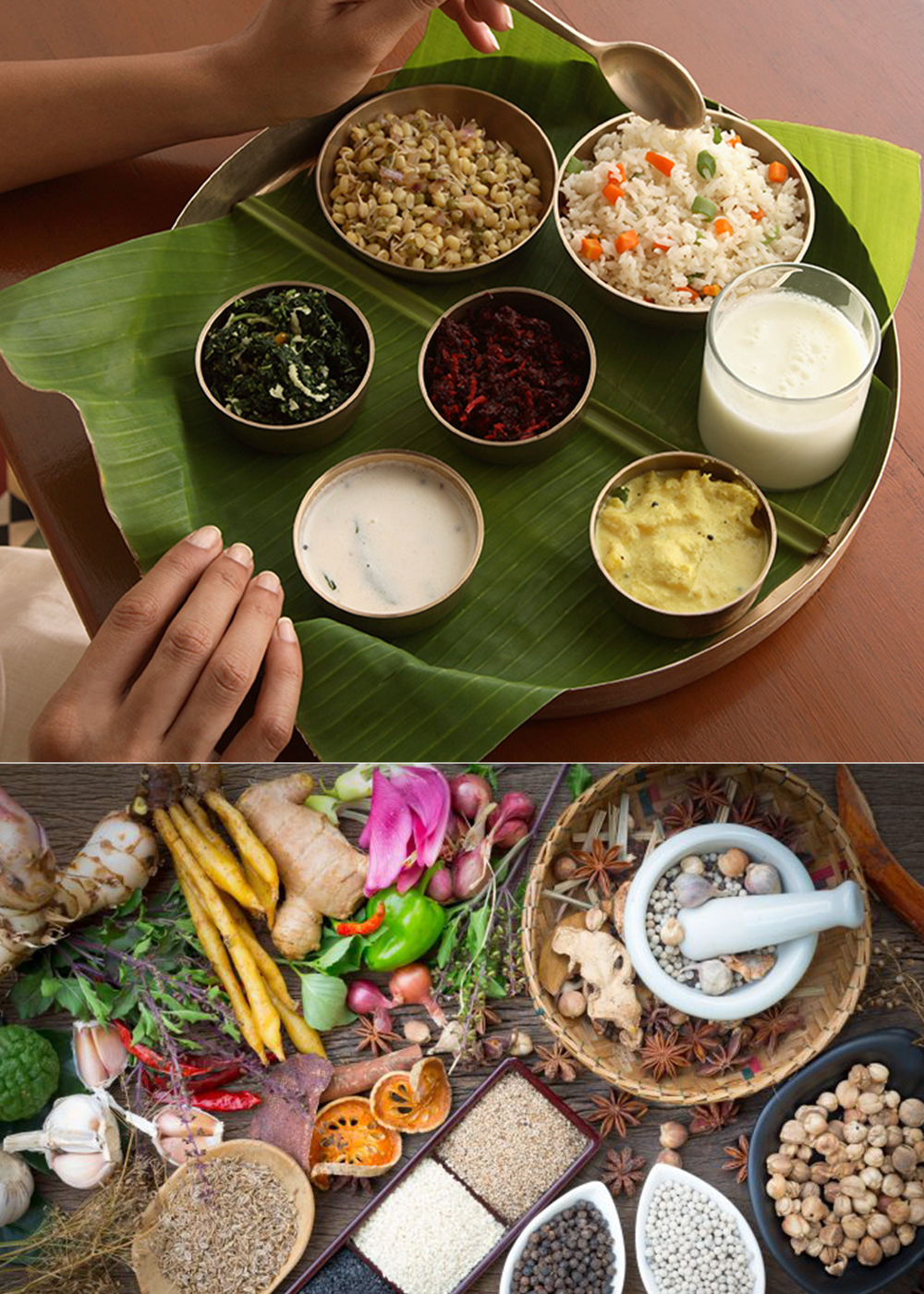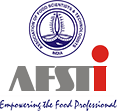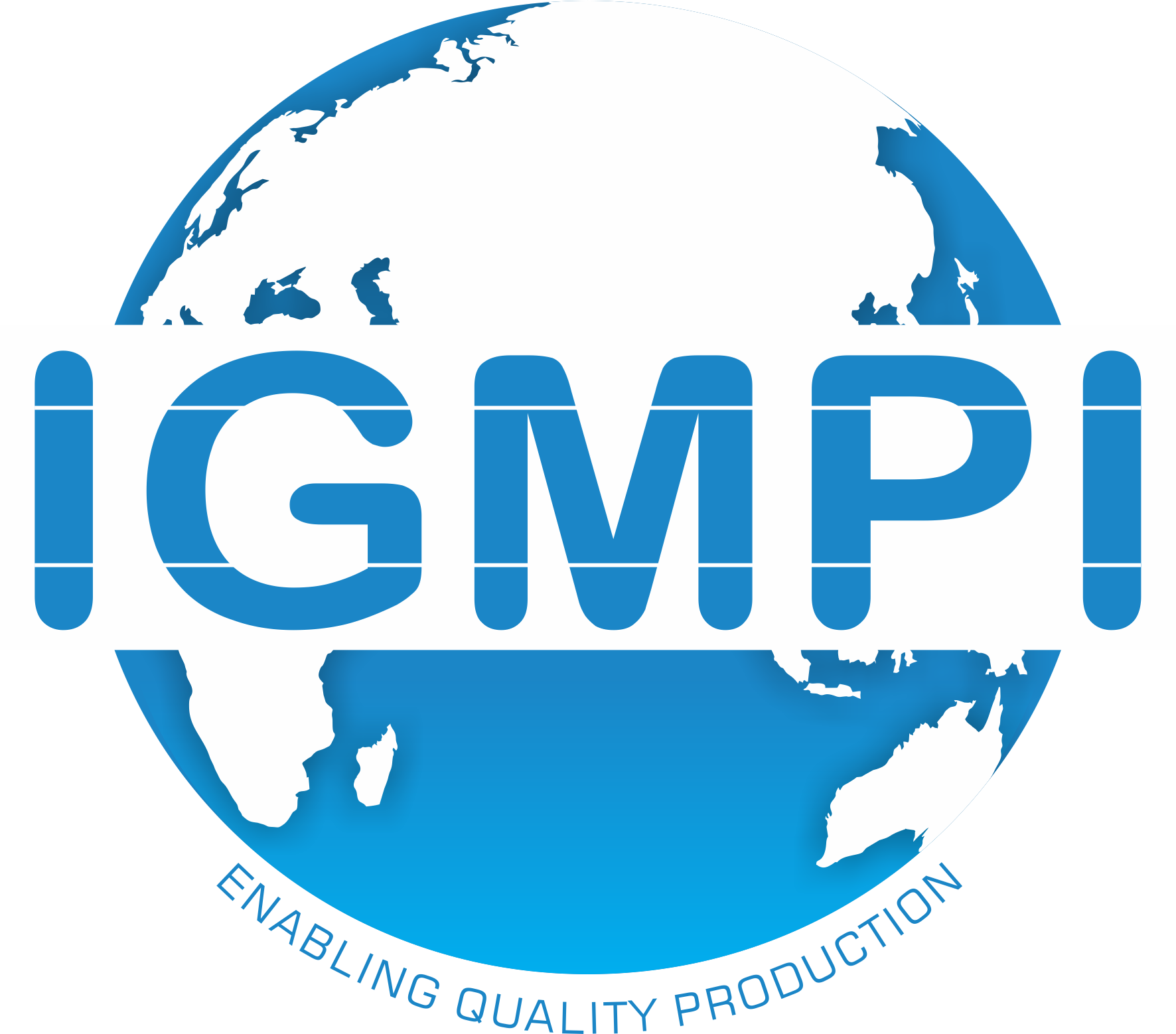


Centre for Nutrition and Dietetics Studies (CNDS)has been set up under the aegis of IGMPI registered as a non-profit society (under The Societies Registration Act, 1860) with the Government of India.The Centre is committed to promote proper diet and nutrition which is crucial to the health and happiness of the society at large.
CNDS is imparting education in the field of Nutrition and Dietetics to thousands of knowledge seekers in the classroom setting as well as research dissertation, field and online learning training programmes.
CNDS provides and education programmes and imparts extensive knowledge through classroom and online modes, in the holistic Nutrition programmes like Nutrition and Dietetics as well as specialized courses like diabetes education, paediatric nutrition, nutritional oncology, ayurvedic food and nutrition, obesity and weight management, clinical diabetology, nutritional gastroenterology and hepatology and many other programmes. Our courses are designed with outmost care given to the industry requirements and shaping careers in the field of Nutrition dietetics, medical and non-medical.
Students gets to experience the expertise from faculties who are specialized in Nutrition, dietetics, foods, pharmaceuticals, healthcare, etc. The centre is well equipped with all the teaching aids and advance laboratory equipment and devices.
The Centre is committed to making nutrition accessible to everyone through nutrition recommendations, easy-to-follow explanations, interactive two way communication lectures, dynamic presentations of the lectures.Apart from this the center provides ample opportunities for the students to comprehend the latest diet plans and nutrition requirements with hands-on practices in Industry, Hospitals and Clinics.
Post completion of the all the courses, CNDS also provides job and Internship placement assistance to students in an easy and effortless way.
Institute of Good Manufacturing Practices India, registered under SR Act XXI of 1860, Government of India, recognised by Ministry of Commerce & Industry, accredited Vocational Institution of Ministry of Education, Government of India and approved by Food Safety and Standards Authority of India (FSSAI) presents unique, friendly and interactive platform to get rid of all your GMP compliance related issues. GMP- an essential element of industries like pharmaceutical, cosmetic, Ayurveda, biotech, homeopathic, medical device and food manufacturing - in itself is the most dynamic part which witnesses frequent changes in terms of newer rules being added and older ones being renewed. Keeping self updated with current GMPs thus becomes inevitable to stay abreast with the changing industry needs and practices.
Our group of learned professionals from above mentioned sectors of the Pharma, Healthcare, Food & Nutraceutical industries have put together their knowledge; know about and practical experiences in form of this GMP guide. IGMPI is moving hand in hand with technology advances and has gained recognition as a stronger and better education and training platform provider for professionals and students in the areas of GMP, Quality Assurance and Control, Pharma, Food & Nutrition and Healthcare Regulatory Affairs, Clinical Research, Pharmaceutical IPR and Good Laboratory Practice and Product Management. The importance of quality healthcare and foods is known to our board of governors and thus numerous efforts are being made to offer friendly but effective and easy regular and online sources of GMP training, Quality Assurance and Control, Pharma and healthcare Regulatory Affairs, Clinical Research, Pharmaceutical IPR and Good Laboratory Practice in form of formal classroom studies, online/interactive programmes, online seminars, as well as onsite training programmes along with knowledge of worldwide affairs of the industry; in short a round-the-clock help for any information in these areas needed by anybody from around the country and abroad. Based on high standard of quality, the training programmes in Pharma, Healthcare and Food GMP, Quality Assurance and Quality Control, Regulatory Affairs, IPR, Pharma Product Management, Public Health, Hospital Management, Clinical Research, Pharmacovigilance, Medical Writing, Medical Coding, Nanotechnology, Drug Design and Discovery, Food QA&QC etc areas have been approved by Quality Council of India, which is an autonomous body and an accreditation authority for education & vocational training providers under the Ministry of Commerce & Industry, Government of India. IGMPI is duly licensed and certified by Bureau of Indian Standards (BIS) under Bureau of Indian Standards (Conformity Assessment) Regulations 2018.
The IGMPI's team of technology experts and other Industry advisors together pursue to make cGMP knowledge, training in the area of Pharma and Food manufacturing easily accessible, through this platform.
IGMPI is recognized by the Ministry of Commerce & Industry Government of India. Duly licensed and certified by Bureau of Indian Standards (BIS) under Bureau of Indian Standards (Conformity Assessment) Regulations 2018 (License number: CRO/QM/L-8004228) for offering education and training programmes in the areas of Pharmaceutical, Food, Nutrition and Healthcare.


Institute of Good Manufacturing Practices India (IGMPI) is registered as a non-profit society with its own Memorandum of Association and bye-laws under The Societies Registration Act, 1860, Government of India. IGMPI is an accredited Vocational Institution of Ministry of Education, Government of India.
The Post Graduate and Executive Diploma programmes of IGMPI in Good Manufacturing Practices, Regulatory Affairs, Intellectual Property Rights, Quality Assurance and Quality Control, Public Health, Nanotechnology, Hospital Management, Product Management, Sales and Marketing Management, Clinical Research, Medical Writing, Drug Discovery and Development, Pharmacovigilance, Medical Coding have been duly assessed and approved by Quality Council of India, Government of India based on fulfillment of QCI's following criteria:
IGMPI is also approved by Food Safety and Standards Authority of India (FSSAI) (FSSAI ID: TPINS18). IGMPI® is licensed by Department of Food Safety & Drug Administration under the Drugs and Cosmetics Act, 1940 and registered under Food Safety and Standards Act 2006. QUALITY COUNCIL OF INDIA (QCI) has also conferred IGMPI with D.L. SHAH NATIONAL QUALITY AWARD, Certificate of Merit & ASSOCHAM has conferred IGMPI with the Services Excellence Award based on excellence of its services to the students and training participants.
IGMPI is a Lifetime Institutional member of Indian Pharmaceutical Association (IPA).

IGMPI is an Institutional member of The Association of Food Scientists and Technologists (India), (AFSTI).

Bureau of Indian Standards (BIS) came into existence through an act of Parliament in 1987. BIS is the National Standard Body of India established under the BIS Act 2016 for the harmonious development of the activities of standardization, marking and quality certification of goods and for matters connected therewith or incidental thereto. The Bureau is a Body consisting of 25 members representing both Central and State governments, Members of Parliament, industry, scientific and research institutions, consumer organizations and professional bodies; with Union Minister of Consumer Affairs, Food and Public Distribution as its President and with Minister of State for Consumer Affairs, Food and Public Distribution as its Vice-President.
For providing its education and training services to overseas students, IGMPI is registered with the Directorate General of Foreign Trade, Government of India and our Export Import Code is AADCI7680Q.
IGMPI is an Institutional Member of the International Society for Quality in Health Care 
Bureau of Indian Standards (BIS) is a member of International Organization for Standardization (ISO) and through the Indian National Committee (INC) which is a member of International Electrotechnical Commission (IEC). BIS is also a member of regional standards bodies like Pacific Area Standards Congress (PASC) and South Asian Regional Standards Organization (SARSO). India started taking part in IEC from 1911 and subsequently the then Indian Standards Institution (now BIS) took over the responsibility of Indian National Committee of IEC(INC-IEC) in 1949. Since then the INC-IEC is actively participating in the activities of the IEC both at the policy level and technical work and carrying out the responsibilities as member body of IEC Council. India is a member in Standards Management Board (SMB) of IEC since 2015.BIS has also signed Bilateral Cooperation Agreements (BCA)/Mutual Recognition Agreements (MRA) with the National Standards Bodies of several countries like Afghanistan, Bangladesh, Belarus, Egypt, European Union , Germany, Ghana, Greece, Indonesia, Iran, Japan, Jordon, Kenya, Kyrgyzstan, Mali, Mauritius, Nigeria, Russia, Saudi Arabia , Slovakia, Slovenia, Suriname, USA, UAE, Uzbekistan, Viet Nam, Bhutan, Brazil, Israel, Nepal, Pakistan and Sri Lanka.
National Accreditation Board for Certification Bodies (NABCB), Quality Council of India is a member of International Accreditation Forum (IAF) & Pacific Accreditation Cooperation (PAC) as well as signatory to its MLAs for Quality Management Systems, Environmental Management Systems and Product Certification. NABCB is also a Full Member of International Laboratory Accreditation Cooperation (ILAC) & Asia Pacific Laboratory Accreditation Cooperation (APLAC) as well as signatory to its MRAs for Inspection.
Post Graduate Diploma/Executive Diploma in Ayurvedic Food and Nutrition offers knowledge and skill upgradation among students/healthcare professionals as dietitians/doctors. IGMPI is offering an opportunity to become a Ayurvedic Nutritionist for those who understand that people are more conscious and concerned about their health, so they look for the Ayurvedic Nutritionist or Personal Nutritionist who has Diploma to reassure that they are trained and qualified in the Ayurvedic Nutrition field. This professional typically works in: ayurvedic health centers, clinics, and ayurvedic academies. An Ayurvedic Nutrition Specialist helps clients (i.e., Ayurvedic patients) to develop their fitness routine and body building.
The objective of this programme is to recognize nutrition and health in adopting that right amount of nutrients to be provide in individual life, Ayurvedic Food and Nutrition is an emerging field of healthcare and Ayurveda industry. It is a whole new area that understands the need of good food habits and imparts guidance to develop a healthy world. These professionals would design dietary treatments not only for diseased individuals but also work on some health drives for those who love to lead a hale and hearty lifestyle. On completion of this programme, students will be able to explain how to improve nutrition and health status of a person, learning about the dietary guidelines, diet plans, its nutritive value and effects on the body, purely in Ayurvedic way.
The programme has been designed for professionals and students aspiring to work in the field of Ayurvedic nutrition as dietitians, nutritionists, research work in projects.
Module 1: Introduction to Human Biology and Body Functions
Module 2: Nutrients (Role and Significance)
Module 3: Understanding Nutrition (Basic diets for normal conditions/RDA)
Module 4: Advanced Nutrition
Module 5: Introduction to Clinical Nutrition
Module 6: Introduction to Ayurveda Science and its Principles
Module 7: Role of Prakriti and Ayurvedic Lifestyle
Module 8: Concept of Agni and Ama (Intermediate Metabolites) in Ayurveda
Module 9: Understanding Concept of Ayurvedic and Modern Ahar
Module 10: Ayurveda Ahar Guidelines and Seasonal Diet
Module 11: Managing Lifestyle Disorders through Ahar
Module 12: Concept of Immunity in Ayurveda and its Relation with Ahar
Module 13: Management of Disease through Ayurvedic Ahar
Module 14: Samskars in Cooking & Utensils Used in Ayurvedic Cooking
Module 15: Impact of Junk Food and its Healthy Alternatives in Ayurveda
Module 16: Kitchen Spices and their Therapeutic Uses
Module 17: Myths in Society and Facts in Ayurveda and Dietary Substances
Module 18: Practitioner Case Studies
Graduation/ B.tech/ B.Sc. in Microbiology/ Life Sciences/ Botany/ Zoology/ Food Science/ Food Technology/ BE/ B.Pharma/ MBBS/ BDS/ BHMS/ BUMS/ BAMS or any other discipline. Diploma holders are eligible for our Executive Diploma Programmes.
The duration to complete this programme is 1 year (Post Graduate Diploma), 6 months (Executive Diploma).
The registration dates for this annual programme run by the Institute are updated timely on the webpage. Effective online learning tools incorporated into the design of the webpage make the programme lectures, online live classes and study material easily accessible. This gives a huge window of self-regulated and self-paced performance to the participants.
A comprehensive study material for all the modules in hard copies ensuring the needs of the audience. The accompanying training material is appropriately aligned with the current Industry’s expectations.
IGMPI follows a credit system based on all-learning activities involved in studying for all PG Diploma Programmes. Each of your modules is equal to 4 credits. To successfully complete the programme, you will have to earn all the credits assigned to your programme.
All the participants are obliged to timely submit completed assessment assignments (during the programme, usually after every module) and appear for an online exam at the end of the programme. After successful completion, the participants will be awarded Post Graduate Diploma/Executive Diploma in Ayurvedic Food and Nutrition by Centre for Nutrition and Dietetics Studies, IGMPI. For all the above-mentioned modules elaborate programme material, self-assessment assignments and project work details would be provided by the Institute from time to time. Details get updated on the webpage as well.
The Institute has partnered with many organizations for providing with placement assistance to in its participants. The robust placement cell comprises of senior level Human Resources professionals and Talent Acquisition experts which maintains close links with business and industry. We are engaged in promoting the employability of our participants by maintaining good rapport and relation with HR cell and recruiting managers of leading Food and Agriculture companies across the globe. The efforts of our placement cell also include helping with professional resume writing, interview skills & conducting mock interviews etc.
In recent Months the Institute has witnessed more and more participation from professionals working global healthcare and nutrition giants like Herbalife International India Pvt. Ltd., Aayush Food and Herbs Limited, Herboveda India,Patanjali Ayurved, Hindustan Unilever Ltd, Emami, Himalaya, Vaddmaan Innovation LLP – Natural Nutrition Company, Ayurinveda Remedies Pvt. Ltd., Namhya Foods Pvt. Ltd., Syastha Foods & Nutrition Pvt. Ltd., Lifespan Pvt. Ltd., Pristine Organics Pvt. Ltd., Pure Natural Products Pvt. Ltd., Perfect Ayurveda, Herbs Nutriproducts Pvt. Ltd., etc.
Centre for Nutrition and Dietetics Studies (CNDS), IGMPI’s online programme is a professional programme targeted to cater the health industry needs trained health professionals. The information, guidance, practical training and off programme completion certificate will provide the participant with not one but many opportunities in the industry. This would come true in the form of job roles and positions like that of Ayurvedic Nutritionist, Ayurvedic Nutrition Counselor for Health and Ayurveda related Academy, Ayurvedic dietician, Ayurvedic Diet Consultant among Non-Governmental Organizations, Health and Ayurvedic Nutritionist in community ayurvedic nutrition related programmes run under government organizations, consultant for different ayurvedic academies, private Ayurvedic healthcare centers, hospitals, academia and many more.


18001031071 (Toll Free), Phone: +91 11 26512850